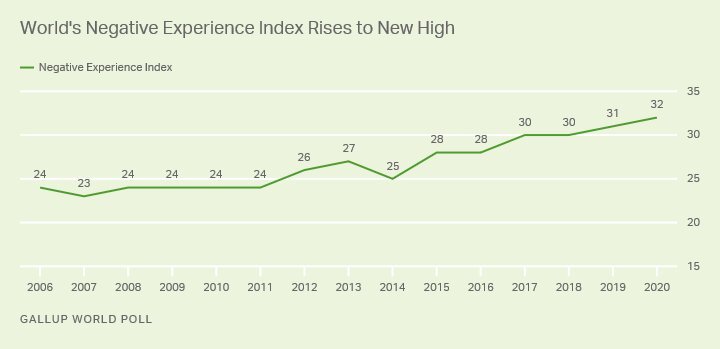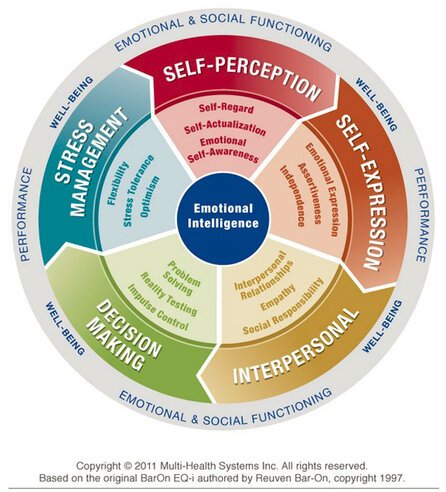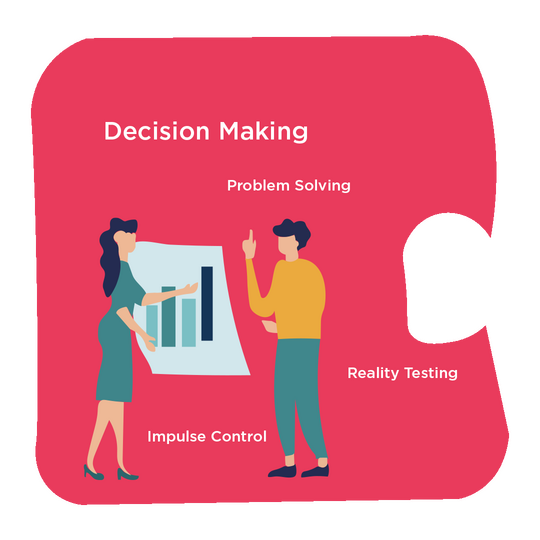The Decade Long Rise
When we struggle with our mental health, it feels like we’re on a sinking boat. It becomes increasingly difficult to stay productive at work, we lose motivation and we aren’t performing optimally. Therefore, not only are your people suffering, but so is your bottom line. Here’s some evidence to pay attention to:
- It costs the global economy US $8.1 trillion, nearly 10% of GDP, in lost productivity each year.
- “It is possible — even likely — that employee mental health will get worse.”
- In 2020, the year in which COVID-19 took the world by a storm, seven in 10 employees were struggling or suffering in their lives.
- 2020 may have been a record year for negative emotions, but Gallup has reported that the world has been on a downward spiral for the past decade.

Why Emotions Matter
For most of us, we have been trained to leave our emotions at the door. As a result, we’ve become detached from our emotions, particularly powerful ones such as sorrow, anger, and anxiety. But while we can suppress or deny our emotions, we can’t get rid of them. Whether we recognize them or not, they’re still there.
Consequently, until you are connected to all of your emotions, you cannot cope with stress, fully understand your actions, or regulate how you think and behave. Emotional intelligence (EQ) is the ability to recognize, comprehend, and manage your own emotions in order to reduce stress and anxiety, communicate with impact, connect with others, overcome life’s obstacles, and resolve conflict. It is classified into five composite scales: stress management, self-perception, self-expression, interpersonal, and decision making.

How can your company do its part in improving your employees’ mental health and well-being by developing the five EQ composite scales in your team?

Stress Management
The most crucial composite in improving your employees’ well-being is stress management. We all know that stress cannot be eliminated completely, so the aim should be to boost our employees’ ability to cope with stress without a decrease in performance. By improving your employees’ ability to manage stress when things are changing or are not going well, they’ll be able to face larger challenges with more self-assurance and emotional resilience. They will have a positive attitude and adapt more easily to unfamiliar and unpredictable situations.

Self-Perception

Self-perception is one of the core components of emotional intelligence and is all about how one sees themselves. When employees recognize their own emotions and how it impacts their thoughts and behaviors, they’ll be able to self-regulate better and work more effectively. Once your employees enhance their self-perception competencies, they’ll have a greater understanding of their strengths and weaknesses. They will gain self-confidence and belief in their abilities, which will allow them to believe they can and will achieve the work at hand—ultimately adopting a mindset of resilience and mental toughness to be more productive, optimistic, and adaptable.
Self-Expression
When employees have too much on their plates, whether it be at work or in their personal life, their mental health takes a toll. However, most employees are reluctant to ask for help from their employers. Consequently, they’ll be overworked, more likely to become burned out or distracted, and less likely to perform to the best of their ability. In fact, distraction at work is an issue for 69% of full-time employees, according to a survey by Udemy. By empowering your employees to develop the competencies within self-expression, they’ll be able to narrate their internal thoughts to others effectively and constructively communicate their needs and desires. They will also learn to balance knowing when to ask for help and when they have the emotional stamina to manage independently.

Interpersonal

In a meta-analysis conducted by the journal Personality and Social Psychology Review, they reported that people who felt more camaraderie with their coworkers, and more engaged to their company, had better mental health and were less prone to burnout. It’s crucial to encourage your employees to develop and maintain strong interpersonal relationships. Not only is it beneficial to their mental health and productivity, but it benefits your company’s productivity and success as well. When you instill strong interpersonal skills within your employees, they’ll be able to identify and interpret the emotions of others and respond accordingly. Ultimately, your employees will be able to effectively communicate, inspire and motivate others, collaborate on projects, and resolve conflicts.
Decision Making
Although we make choices and problem solve on a daily basis, it can become more difficult to make sound decisions when we are faced with mental health struggles. The last EQ composite scale, decision-making, is focused on our ability to make informed decisions even when emotions are overpowering. It’s essential to develop your employees’ decision-making skills in order to help them regulate their emotions, use the data provided by their emotions to avoid impulsive decisions, take initiative and show dedication, and make rational decisions in times of chaos.

Emotional Intelligence Can Save Your Team From Sinking
As much as we like to leave our emotions at the door before we walk into work every day, the truth is—we’re human. When we’re struggling or suffering in our lives, it’s difficult to stay engaged and perform optimally in our professional lives, no matter how hard we try. Considering that 80% of employees are not engaged or actively disengaged at work, it’s imperative that companies take a step back, and construct a game plan to manage the mental health and well-being of their employees. Your employees are on a sinking boat, and you’re the lifeline that they need to ride the wave again and gain stability rather than emotional turmoil.

Yet, no matter what your circumstances or obstacles are, it’s not too late to learn, develop, and enhance the vital emotional intelligence skills to improve well-being and employee experience.
To learn more about emotional intelligence and how it impacts your organization, sign up for our biweekly newsletter here, where you will receive our latest updates, an inventory of resources, and much more!
If you need help improving or managing employee well-being and mental health in your organization, book a call with us here; we’d love to listen and provide support in any way we can.
Don’t forget to follow us on Twitter, Facebook, Instagram, or Linkedin to keep up with our latest blogs!
